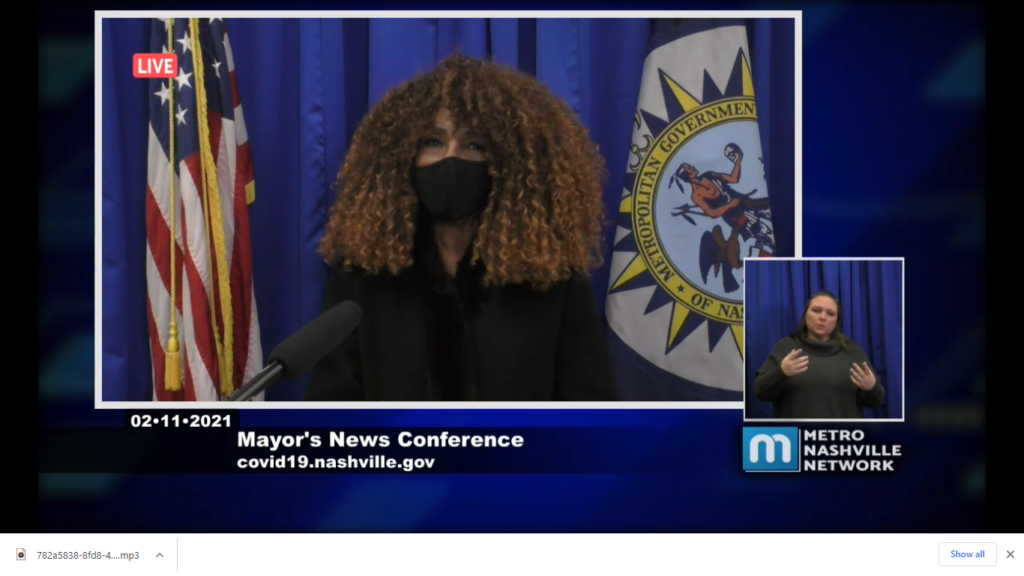
Nashville will be launching an education campaign and expanding access to COVID-19 vaccines in communities of color, in an effort to improve their vaccination rates.
In Davidson County, 43% of white people age 75 and up have gotten their shots, compared to 29% of Black residents and 35% of Hispanic people in the same age group. That’s as Black and Hispanic communities have suffered a disproportionate number of deaths from the pandemic.
The mayor’s office says it wants to close those racial and ethnic gaps.
“Our mission is to educate, to empower and build trust among people of color in our communities as it relates to the efficacy vaccination,” Brenda Haywood, Metro’s deputy mayor of community Engagement, said Thursday.
The campaign also includes plans to ramp up access to the vaccine in communities of color. Dr. Joanna Shaw-Kaikai, associate medical director at the Metro Public Health Department, said mobile teams will go directly to communities of color to administer shots, especially as the city enters phase 1c, when people with comorbidities like obesity, diabetes and heart disease become eligible to get the vaccine.
Another part of the campaign’s objective will be dispelling misinformation about the COVID-19 vaccines. Shaw-Kaikai said one rumor they’re in the midst of publicly debunking is that white people are being administered a higher-quality vaccine than people of other races and ethnicities.
“That is not true,” she said. “Everyone receives the same vaccine regardless of race, color or ethnicity.”
She said that the vaccines are safe and effective, and that people cannot contract COVID-19 from getting vaccines, which do not use the coronavirus itself. Some people do experience flu-like symptoms after injections because their bodies are building up an immune response, but that is normal.
The initiative seeks to garner grassroots support for vaccinations, and will be relying on virtual town halls and local faith communities to aid in that effort.
State Rep. Harold Love Jr. of Nashville, who’s also the pastor at Lee Chapel AME Church, said he’s getting his inoculation and hopes other will join him when it’s their turn. He noted that people often turn to their faith communities in times of crisis “for hope and for help.”

